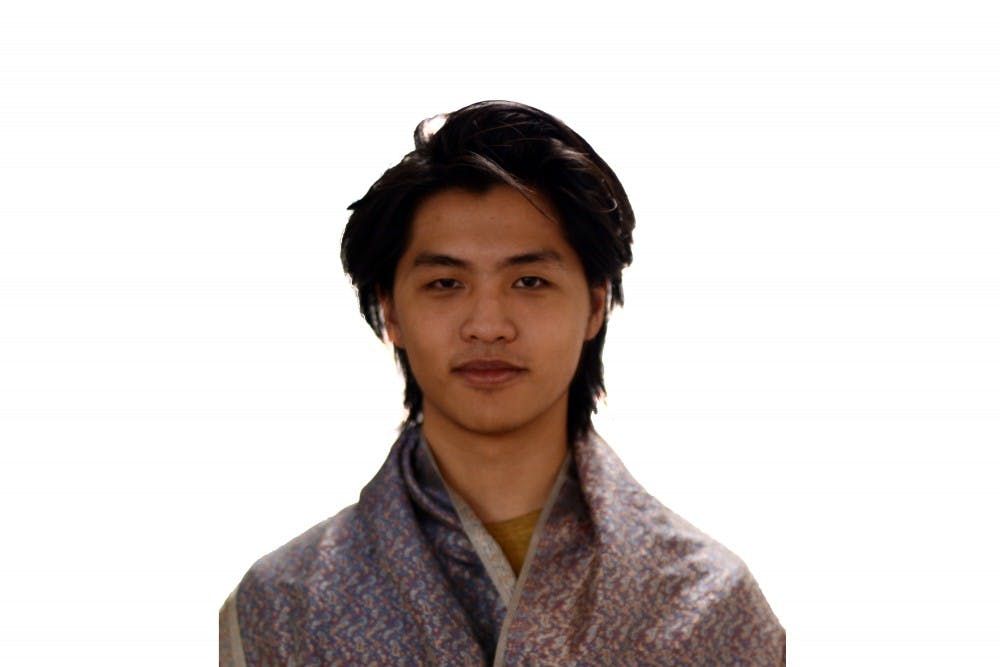Midterms, presentations, papers, mandatory GBMs, round two interviews with Goldman Sachs, hustling your group partner to do all the project work, trying to convince the world that it really was Beyoncé, appearing in court to contest your grandfather’s will — all make just a mouthful of the salty cucumbers in the bottomless pickle jar of obligations our prototypical Penn student must get their hand stuck in.
But come the weekend, motivation has slid and the hair gets did, the spandex — maybe later the latex — is put on and the liver is wronged as jaded Jekyll jives into hooched-up Hyde; it’s time to turn into the jack of no trades, but the master of fun.
Student bodies across the U.S. have all adopted the motto “work hard, play hard” ad nauseam, and Penn is uniquely no exception. We’re Playboy’s No.1 Party school, yet also churn out the most employable students, Wharton or no Wharton. More immediately, we’ll feel this duality directly as we return tan from our expensive exotic excursions, only to immediately buckle down again for school and the job hunt.
But, to paraphrase pharmaceutical fine print, it is not healthy to be hard all the time. Too much psychoanalysis has been done on centrifuging college life into pure concentrations of work and play. Two years ago, that infamous New York Times article diagnosed our hook-up culture as an inevitability of constantly being both too busy and bacchanalian to form meaningful relationships; the Princeton Mom riffed in a similar and more sexist take.
But this is a minor problem — while young love, especially when done right, is great, such Puritan pop prognoses puts too much pressure onto forming relationships in college. For one, they overlook the post-college offerings of family friends, bars, workplace parties, chance encounters, shidduchim, arranged marriages and alleyways to meet marriage material in our brave new world.
Instead, I want to underscore a more immediate and devastating problem: Working hard and playing hard spares us no chance for recovery. According to Hershner and Chervin (2014), 7 out of 10 college students float on fewer than eight hours of sleep per night, the minimum for a sustainable lifestyle.
Like all colleges, Penn has a sleeping problem. While we can certainly feel its externalities, few of us are willing to acknowledge its severity. Instead, trotting on under perennial sleep deprivation is likened to an endurance sport. Some even go so far as to champion stretching the waking hours: Roy Vagelos stipulated that the Vagelos Program Director be paid inversely proportional to the amount of sleep its students would receive. The acceptability of this sadistic statement, even if served with lemony jest and undertones of no-but-actually, reflects how trivially sleep is taken.
Genuine concern is dismissed as nagging, motherly and trite. We all know the health risks — weight gain, emotional misery, stroke, cognitive impairment, existential muteness — yet we prioritize the more immediate problems.
As youth, we also often forget that we are mortal. This is good, because it affords us the confidence to aspire for whatever we dream of without the stuttering stultification of self-doubt. Between obligations and orgies, it might also feel that there are too many balls to juggle to warrant an eight-hour break. And sometimes, it is worth the hit. All-nighters, like drinking, should only be done when necessary.
But we won’t be young forever. Just as an internship is an investment for the future, we need to recognize that so is sleep; unconsciousness is rewarding even when it’s not due to blacking out.
Being an opinion columnist for the DP, I have the privilege of reading my column before it gets published. Over spring break in my Combray of Cambridge, I decided to heed this article’s advice before dispensing it to my devotees. With a hands-off schedule in one hand and a quiet bed in the other, it was the perfect time to pay my sleep debt. But between friends, schoolwork and brushing the cobwebs off some family members, I found it hard to juggle these commitments without stretching the waking hours.
So I gave up on the commitments and decided to sleep in. And I feel great. I’ll deal with the consequences later, but they won’t be in the form of a migraine.
JASON TANGSON is a College junior from Cambridge, Mass., studying linguistics. His email address is tjason@sas.upenn.edu.
The Daily Pennsylvanian is an independent, student-run newspaper. Please consider making a donation to support the coverage that shapes the University. Your generosity ensures a future of strong journalism at Penn.
DonatePlease note All comments are eligible for publication in The Daily Pennsylvanian.








